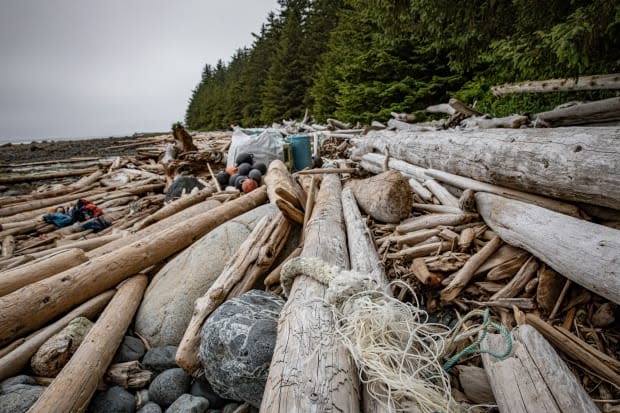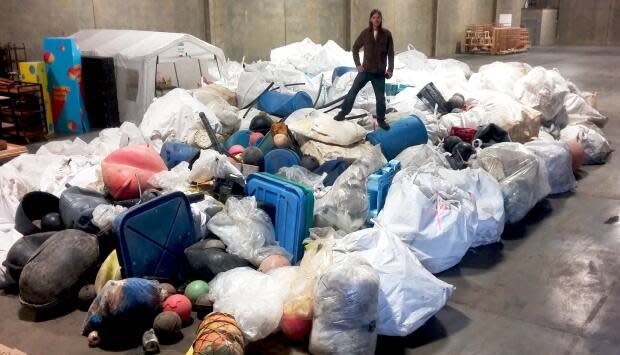Steveston recycling plant aims to transform plastic ocean debris into useful products

A new plastic-processing plant that opened Wednesday in Steveston aims to turn plastic found in B.C.'s oceans into useful products.
In the past year, thousands of kilograms of debris, including plastic foam, plastic bottles, nets, rope, abandoned boats and tires, have been removed from B.C.'s shoreline by the province's Clean Coast, Clean Waters (CCCW) initiative.
The new specialized recycling facility, operated by the Ocean Legacy Foundation, transforms the material into pellets that can be used to create new plastic products.
Chloé Dubois, co-founder and president of the Ocean Legacy Foundation, says the new plastic plant is one of the first of its kind in Canada.
"We have the opportunity to transform a long-standing problem that has plagued coastal communities into a new sustainability sector for our province," Dubois said Wednesday at a news conference.

According to the foundation, over 220 million tons of plastic are produced each year and an estimated 13 million tons of that plastic ends up in the ocean.
B.C. Environment Minister George Heyman said the pellets manufactured by the Steveston processing plant can be repurposed and used to make furniture and clothing.
Creating a cleaner environment
"We're going to create a cleaner environment. We're going to create a healthier future for British Columbians," Heyman said.
"We're going to protect species who have often been fouled by the plastic waste in our oceans."
He said he's also excited about partnering with Indigenous communities in the area to work on projects like this one.
Heyman says the CCCW initiative is a continued part of the CleanBC Plastics Action Plan announced back in 2019, aimed at addressing plastic pollution and creating a healthier province.
Dubois says her organization hopes the move will make British Columbians think twice about their own environmental footprint and encourage them to reduce plastic use.
"We have the opportunity to make ocean plastic pollution obsolete," she said.

 Yahoo Finance
Yahoo Finance 